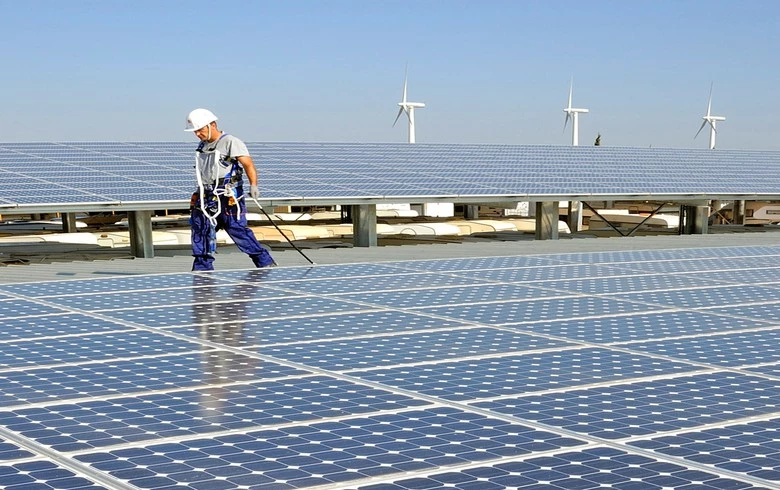May’s municipal elections in Tunisia had many commentators speculating about the future of the country’s ongoing democratic transition. The results were roughly in line with expectations, with the “Islamist” Ennahda taking 27.5 percent of the vote, the “secular” Nidaa Tounes taking 22.5 percent and independent candidates taking 28 percent. At the same time, voter turnout, at 35.5 percent of registered voters, was disappointingly low.
Nonetheless, most observers agree the prospects for democratic transition in Tunisia are much better than they are for Egypt or Libya. Indeed, some have come to see the contrasting trajectories among post-Arab uprising countries such as Tunisia, Libya and Egypt as inevitable.
Other scholars, however, have begun calling for greater attention to human agency. Our research similarly suggests the shape of post-Arab Spring transitions depends as much on human decision-making as on conditions inherited from the past.
The consequences of political exclusion
In the spring of 2013, well-armed militias intimidated the first elected Libyan parliament (the General National Congress, or GNC) into passing a “Political Isolation Law” (PIL), disqualifying anyone who had held positions of responsibility under the former regime from participation in political life.
Today, some Libyans look back on this moment as the end of a hopeful early transition and the beginning of Libya’s unraveling. As we have argued elsewhere, the decision to pursue such a path of harsh vetting increased tensions among armed groups and eroded public confidence in the GNC. It also set a polarizing and exclusionary tone for Libya’s subsequent transition, vestiges of which have included Field Marshal Khalifa Hifter’s uncompromising (and often brutal) campaign against political Islam.
But this was not all preordained. Libyan parliamentarians and the fragile government of Prime Minister Ali Zeidan, supported by the international community, might have presented a united front and forcefully stood up to the PIL’s militia backers. Instead, some ostensibly liberal parliamentarians attempted to shape their law to fit their own interests. If Libyan elites had succeeded in blocking the move toward political exclusion, its champions in Misrata may have felt compelled to forge a compromise with their militia rivals in Zintan, for instance, which in turn may have averted the fragmentation of Libya into two competing governments in 2014.
The consequences of vetting policies
The PIL in Libya offers a powerful illustration of the dangers and unintended consequences of choices transitional governments make about politically-motivated vetting — a common occurrence when new elites come to power under revolutionary circumstances.
In Tunisia, however, elites made a very different set of choices. In 2014, Islamist parliamentarians, who spoke for many victims of the authoritarian regime of former president Zine el-Abedine Ben Ali, decided to relinquish of their demands for vetting. At several key moments since 2011, including the much-hailed National Dialogue of 2013, important individuals and groups in Tunisian society chose to pursue an inclusive approach — an approach that is not always popular. A parliamentary vote attempted, but failed to block an extension to the Truth and Dignity Commission to continue its work investigating past crimes.
Egypt provides yet another example of how new elites’ handling of former ones can shape the path of subsequent transition. In 2011, the ascendant Muslim Brotherhood (MB) fatefully chose not to meaningfully challenge the privileges of the Egyptian military in exchange for sped-up parliamentary elections and the Islamists’ first accession to a parliamentary majority later that year. The MB’s decision not to pursue any retributive justice allowed the military to remain the real power in Egypt. The military subsequently used that power to disband the elected parliament in 2012, and ultimately to carry out a military coup against the democratically elected president, Mohamed Morsi, in July 2013.
These examples demonstrate the need for careful examination of the alternative choices elites periodically faced, the factors they weighed and the circumstances under which they made their decisions. In post-Arab Spring transitions, few outcomes were inevitable, despite how things appear in hindsight.
Choices after elections
Tunisia’s local elections raised the hope that the empowerment of new local delegates will weaken individuals and institutions aimed at preserving the authoritarian ways of the past. This in turn could encourage more Tunisians to vote in subsequent elections.
On the other hand, high levels of political fragmentation could lead President Béji Caïd Essebsi to strengthen the power of the presidency, despite protests from civil society. Some have also speculated that the party’s allegations of polling violations were an attempt to stall its opponent’s victory.
Like other events since 2011, the success of Tunisia’s experiment in decentralization will depend on choices made by the winners of May’s contest, along with the actions of civil society and the communities ostensibly empowered by decentralization. It will also be contingent on economic progress, badly needed to legitimize Tunisia’s democratic transition.
In Libya, where national elections are being planned for December, the international community is working to broker deals among Libya’s competing factions. However, the choices of Libyan leaders will ultimately determine whether the deals will hold. Decisions around holding a constitutional referendum before the elections, for instance, could either delay the elections or help establish a common constitutional basis for the vote, depending on the will of Libya’s competing political and militia actors. Members of the Tobruk-based House of Representatives are currently blocking needed electoral legislation, according to U.N. Special Representative Ghassan Salamé.
In Egypt, President Abdel Fatah al-Sissi has brutally crushed dissent, but that does not make him immune to popular pressure, especially if his economic changes fail to improve the lot of ordinary Egyptians. Moreover, Sissi’s sweeping victory in this spring’s presidential elections was reported to have been undergirded by vote-buying and low turnout, demonstrating the regime’s weak popular legitimacy. Sissi’s policy decisions in the coming months could determine the stability of his regime.
Again, no outcome is inevitable.
Moving beyond inevitabilities
While it is tempting to highlight the inevitability of contrasting post-Arab uprising trajectories — for instance underscoring Libya’s “stateless” history in contrast to Tunisia’s — such explanations fail to account for each case’s many moving parts.
Labeling any attempted political transition a “success” or “failure” represents an unhelpful binary, as several regime turnovers once considered “successful” cases of democratization, like Turkey or Hungary, later began to exhibit distinctly undemocratic features. Zooming in on pivotal moments during attempted transitions helps identify unpredictable choices that served as the catalyst for chains of events that were influenced, but not wholly determined, by the past.
TunisianMonitorOnline (The Washington Post)




